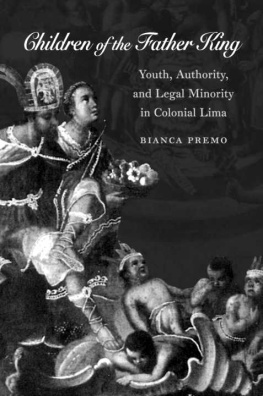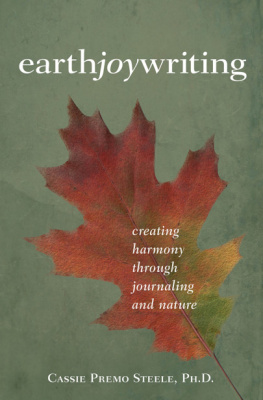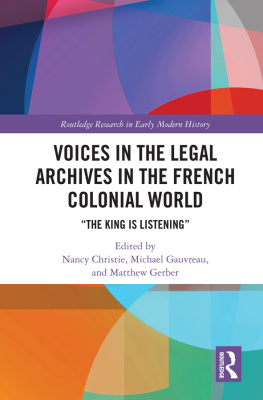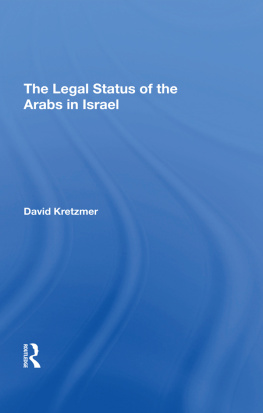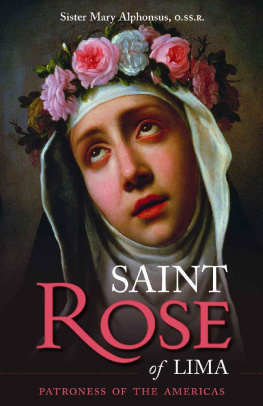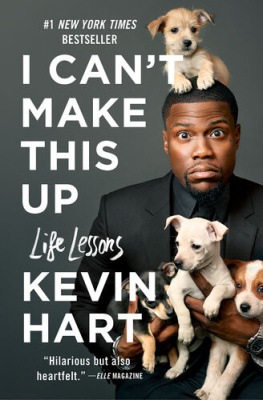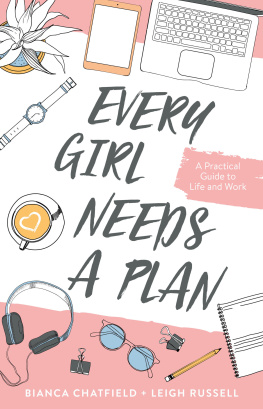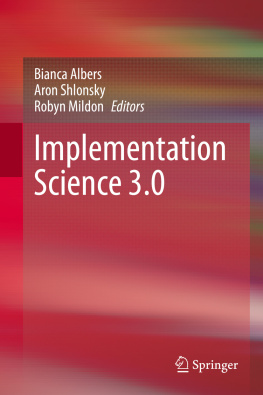Bianca Premo





for Barry and c,7lilaggie
ILLUSTRATIONS
Map of Lima, 1685 46
Virgen de la Leche 53
America Nursing Spanish Noble Boys 176
FIGURES
2.1 Total Free Population by Age and Caste, Lima, 1700 49
2.2 Percentage of Free Nonwhite Children in Households with Espanol Adults, Lima, 1700 55
2.3 Apprenticeships by Caste, Lima, 1645-1800 56
2.4 Guardianship Contracts by Type, Lima, 1640-1750 70
4.1 Criminal Arrests by Age, Cabildo, 1714-1813 116
4.2 Cabildo Cases by Crime Type, 1714-1813 127
6.1 Average Number of Civil Cases per Year, Lima, 1650-1821 184
A.1 Projected Totals of Apprenticeships 260
A.2 Projected Totals of Guardianships 261
TABLES
2.1 Custodians Present at Apprenticeship Signing, Lima, 1645-1800 57
4.1 Cabildo Arrests by Caste and Gender, 1714-1813 121

First in my thanks are those friends and colleagues in Lima who have welcomed me into their homes and academic institutions, and sometimes even into the legendary bovedas that hold the most coveted of old documents. I wish to acknowledge those associated with the Instituto de Estudios Peruanos in particular, and thank Carlos Contreras, Luis Miguel Glave, Jorge (Tito) Bracamonte, Vicky Garcia, and Cecilia Gianella for their personal and intellectual generosity, especially for that which they offered over curling mounds of ceviche and glasses of Cuzquena. Others who offered encouragement, suggestions, and space to present my work include historians Maria Emma Mannarelli, Susana Aldana, Margarita Zegarra, and Scarlett O'Phelan Godoy. Miguel Rabi went so far as to share a transcribed copy of a research find with me. Laura Gutierrez, the director of the Archivo Arzobispal de Lima; Nora Gomero Sanchez, Silvia Montesinos Pena, and other staff members of the Archivo General de la Nacion; and the staff and directors of the Archivo de Beneficencia Publica, the Archivo Municipal de Lima, the Biblioteca Nacional del Peru, the Archivo General de Indias, and other archives in Spain worked diligently and patiently on my behalf. Gracias.
I could not have been there to make mypedidos, of course, without financial support. My research in Peru and Spain and the time I spent writing were funded, respectively, by a J. William Fulbright Dissertation Grant, a Ford Foundation Dissertation Fellowship through the Consortium in Latin American Studies at the University of North Carolina and Duke University, a UNC Graduate School Ofd Campus Dissertation Fellowship, and a UNC Graduate School Dissertation Completion Fellowship. The Lewis Hanke Prize from the Conference on Latin American History permitted me to return to Spain in the summer of 2002.
Some of this financial assistance in turn paid for the superb research assistance of Peruvian historians Claudia Valdivieso Garcia and Ilana Aragon. Asmaa Bouhrass followed up on archival leads in Seville that I could not pursue during the AGI's restoration, and Agnieszka (Agnes) Czeblakow ably provided bibliographic help during the final phases ofwriting. Philip Misevich also deserves thanks for the thankless tasks he performed as a graduate research assistant.
Among the many people in the United States who have shared their research or offered critiques on parts of the manuscript, I would like to acknowledge Charles Walker, Ann Twinam, Donna Guy, Valentina Tikoff, and Kathryn Burns. Kenneth Mills kindly arranged for permission to use one of the paintings I present here. I would also like to thank the conference audiences and panelists who helped hone my arguments, as well as the anonymous readers who reviewed my work for other publications. I offer special appreciation to Christine Htinefeldt and Sonya Lipsett-Rivera, who served as reviewers for the University of North Carolina Press. At UNC Press, Pamela Upton and Stephanie Wenzel could not have been more pleasant or professional, and my editor, Elaine Maisner, showed this first-time book author extraordinary enthusiasm and trust.
I owe a heavy debt to colleagues and teachers and to my close friends, who also happen to be a remarkably smart group of scholars. On a daily basis, David Sartorius contributes immeasurably to my scholarship by pen and by phone. Mariola Espinosa, Michele Strong, Joann (Jody) Pavilack, Philippe Rosenberg, Adriana Brodsky, Marie Francois, and Jan Hoffman French also have been strong sounding boards and demanding editors. Jody even performed a bit of impromptu research for me in the Duke Special Collections Library in the middle of a move. Frederick Solt, for his part, performed a miracle in remedial education by helping me work through some of my statistics. It is especially appropriate that I mention now that all errors contained in this work are my own.
At the University of North Carolina at Chapel Hill, my dissertation director, Sarah Chambers; John French (Duke University); Louis A. Perez; John Chasteen; and Irene Silverblatt (Duke University) were an attentive, sharp doctoral committee. Perhaps more importantly, they have become cherished friends who continue to pull up a chair for me at their kitchen tables and conference roundtables years after I completed the Ph.D. Really, I have been spoiled by an unusually fun, friendly, and challenging intellectual life not only as a graduate student in Chapel Hill but also in my work at Emory University. Jeffrey Lesser, Susan Socolow, and James Melton have gone especially out of their way to make sure I am at home in Atlanta, for which I am very appreciative.
The academic and professional accomplishments of my mother and best friend, Blanche Premo-Hopkins, make her quite unlike most women of colonial Lima. But she will undoubtedly recognize the difficulties many of them had in raising children alone. For most of my youth, I lived in a small, loving family of laughing women. The strength and wisdom of my mom and my older sister, poet and scholar Cassie Premo Steele, undoubtedly influenced a key interpretation I advance in this book: even when the normative value is placed on households headed by men, women can exercise a great deal of authority over others, especially generationally! Crale Hopkins, my stepfather, influenced other arguments and ideas in this book. He taught me that biological kinship is not the only family relationship that matters. A scholar of American literature, his favorite character was a child, the indomitable Huck Finn, who concluded his own story by saying, "If I'd a knowed what a trouble it was to make a book I wouldn't a tackled it." I cannot say the same, since I believe it made Crale proud that I was writing this book. I wish he had lived to see it published.

